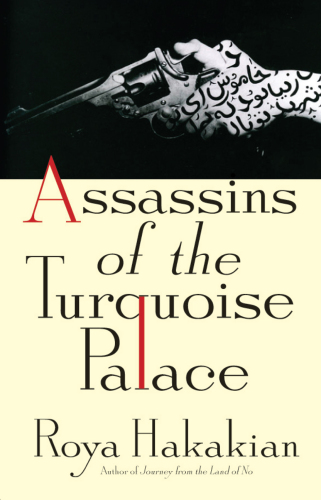
Assassins of the Turquoise Palace
کتاب های مرتبط
- اطلاعات
- نقد و بررسی
- دیدگاه کاربران
نقد و بررسی

July 18, 2011
Hakakian's first book, Journey from the Land of No, told the author's story of her years growing up in Iran under Ayatollah Khomeini. Her present work is an admirable, if somewhat overwritten, look at the September 17, 1992, terror killing of four Kurdish exiles who were holding a meeting in a small restaurant in Berlin. This crime resulted in a massive German investigation and an equally massive four-year trial that ended with guilty verdicts for the accused and, more importantly, a condemnation of Iran's leaders as the instigators of the murder plot. The author does a worthy job of presenting the facts through the eyes of the men who survived the shooting and the German authorities who prosecuted the case. Though the focus on Middle East politics should give this broad appeal, readers most interested may be the two million Iranian expatriates and the 150,000 who reside in Germany. The real heroes are not just the Kurdish dissidents but the men and women of Germany's legal community who fought against powerful diplomatic pressure in the interest of justice.

Starred review from August 15, 2011
Riveting account of a multiple murder and trial that led to a paradigm shift in Europe's relations with post-revolutionary Iran.
On September 17, 1992, heavily armed assassins burst into a restaurant in a quiet immigrant enclave in Berlin, rudely interrupting a dinner honoring Sadegh Sharafkandi, a leader of a dissident Iranian-Kurdish political organization. Opening fire with automatic weapons and following with a series of single shots, they murdered Sharafkandi and three other Iranian and Kurdish activists. Although the chief assassin was never caught, three of his accomplices, one Iranian and two Lebanese men with connections to Hezbollah, were quickly taken into custody. The ensuing five-year trial, where the crimes of the Stasi were tried after Germany's reunification, were presided over by the same meticulously fair Judge Frithjof Kubsch who had overseen the sensitive Stasi trials. Hakakian (Journey from the Land of No: A Girlhood Caught in Revolutionary Iran, 2004) deploys all of her talents as a former producer at 60 Minutes and a poet in her native Farsi to tell the human and political story behind the news. She closely follows the surviving family and friends of victim Noori Dekhordi, who immediately suspected that the orders for the assassinations came directly from the Iranian regime's top officials. Hakakian's novelistic narrative details the intrigues in the Iranian diaspora as the prosecution unearthed threads leading from Tehran to hundreds of murders and a plot to kill hundreds more around Europe in the 1980s and '90s. These findings caught the German government between Tehran's vengeful mullahs, whose interests it had represented in Europe in exchange for contracts with German businesses like Siemens, and the hundreds of thousands of Iranian dissidents who had settled in Germany since the revolution. Even knowing that relations between Iran and Europe would never be the same won't prepare the reader for the surprising—even shocking—twists the trial took.
A nonfiction political thriller of a very high order.
(COPYRIGHT (2011) KIRKUS REVIEWS/NIELSEN BUSINESS MEDIA, INC. ALL RIGHTS RESERVED.)

























دیدگاه کاربران